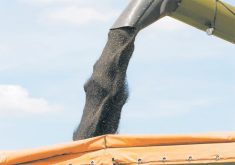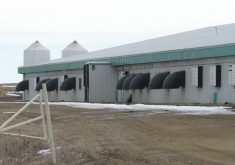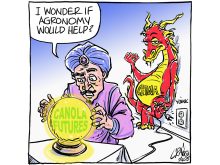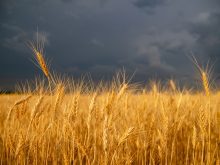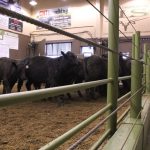Fulsome debate
On Aug. 2, the federal government advanced their campaign of trying to put western Canadian farmers under the thumb of big business. They started the process of removing the spending limits for third party interveners in this fall’s Canadian Wheat Board election, which could open a floodgate of anti-board propaganda.
The feds think the current $10,000 cap for third party spending is too restrictive, and that it would be better for farmers if these parties were allowed unfettered use of their funds to promote their ideology.
Read Also
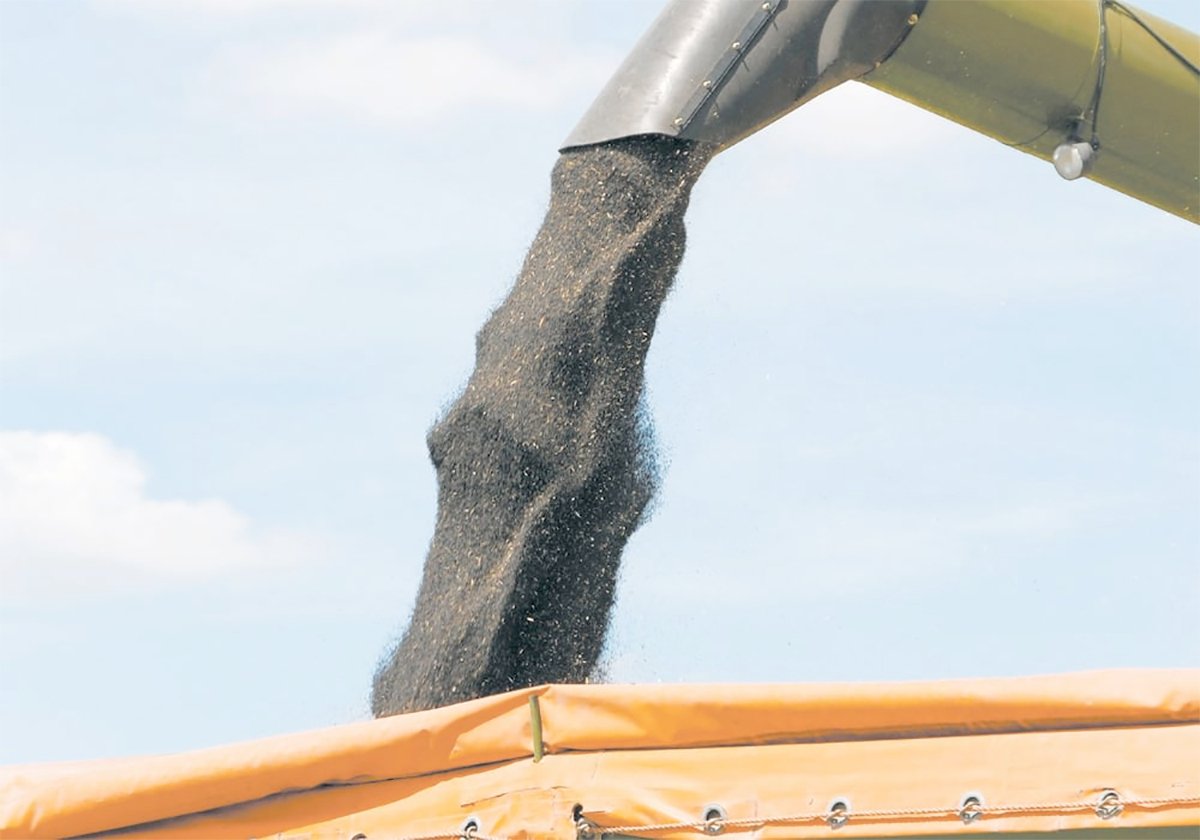
Determining tariff compensation will be difficult but necessary
Prime minister Mark Carney says his government will support canola farmers, yet estimating the loss and paying compensation in an equitable fashion will be no easy task, but it can be done.
The problem, as I see it, relates to the fact that the purpose of this election is supposed to be the opportunity for farmers to elect other farmers who best represent their views for the operation of the CWB.
The candidate spending limit of $15,000 reasonably allows most farmers to participate in the election as either a candidate or contributor with the expectation of a fair, farmer-driven outcome. …
I am intending to run as a candidate in District 6 on the platform that it’s our board, our decision. I firmly believe that it’s up to Western Canadian farmers alone to determine the form and direction that our organization takes, whether it is the dismantling or strengthening of its powers.
It is not in the interests of producers to allow governments (domestic or foreign), agribusinesses, or third parties to set the agenda or make the rules that decide our course of action. Those decisions belong to us.
In their Canada Gazette analysis of their proposed amendment, the federal government repeatedly states that these changes will lead to a “fulsome debate on all CWB issues” and a “fulsome exchange of information and points of view on key issues regarding the direction of the CWB …”
The dictionary defines fulsome as: 1) offensive to good taste, esp. as being excessive; 2) disgusting or repulsive. A strong word, but one that I can agree with.
– Cam Goff,
Hanley, Sask.
Yankee wheat
Cherilyn Jolly-Nagel, Western Canadian Wheat Growers Association president, trots out another queer Yankee study claiming Canadian grain producers would receive higher prices for their wheat it only they could sell on the open market like U.S. farmers (WP, Aug. 7.)
We have heard that claim being made for a lot of years. Probably as often as complaints from the North Dakota Wheat Commission that the Canadian Wheat Board is price dumping wheat into the U.S. market.
I, for one, will not try to change Cherilyn’s mind nor her small band of WCWGA supporters. But, maybe just maybe she will pay attention to what American millers are saying when buying Canadian wheat.
I have in my file, a statement made by John Gillcrist, chairman of the North American Millers Association while appearing before the International Trade Commission.
I quote: “As we have testified over and over, we are forced to pay higher, not lower prices for Canadian wheat. It is so obvious; at least it is to us. The fact that U.S. millers consistently buy more than 80 percent of their supplies from U.S. growers proves we get no price discounts from Canada.”
It is not difficult to understand the point Gillcrist is making. But it sure blows a big hole in Cherilyn’s claim that Canadian wheat producers are short-changed with Canadian Wheat Board marketing.
Gillcrist further states U.S. millers buy more American wheat than all export buyers put together. That’s no small potatoes in the market. For me, Gillcrist’s statements cut a lot more ice than those phony studies the WCWGA keep dredging up.
– Henry Neufeld,
Waldeck, Sask.
Turbine progress
In response to the article “Wind turbines offend our space” (Opinion, Aug. 21.)
Living near Swift Current, Sask., and Canada’s largest wind producing farm, I can easily testify that these turbines have in no way vandalized, nor oppressed, my view of the countryside.
When I look out on that wind farm, I see the presence of progression from our dependence on oil. The idea that we are generating electricity without the need to collect and burn vast amounts of coal is gratifying.
– Lyle Thomson,
Gravelbourg, Sask.
Credible survey?
It is not surprising that the Western Canadian Wheat Growers Association should not be impressed by recent CWB accomplishments (WP, Aug. 7.)
It is surprising that they would take at face value a report commissioned by the government of Alberta, which at one time asked the question: “If the open market would increase your income for barley, would you be in favour of an open market?” It then considered the 66 percent positive response as a scientific survey.
I doubt that anything the CWB can do would ever meet with the approval of either the Alberta government or the WCWGA.
It is sad that so much intelligence, money and energy are wasted on such a useless endeavor as constantly criticizing the CWB. It makes one wonder if these folks are still of a mindset when the crops grown on the Prairies were wheat, barley and oats. With all the options available within and without the CWB, it is a wonder that the CWB is an issue at all….
Unfortunately what is lost with this focus on the CWB is that real agricultural issues are neglected. There is a matter of the U99 virus that is spreading and capable of wiping out our wheat production. In canola we have a similar scenario with clubroot.
Our transportation system, which was supposed to be capable of delivering 32 million tonnes of production has problems with half that number and in spite of the restructuring and investment by many, we now have the situation where a $30 million facility is waiting for rail cars where before it was a $300,000 one. We have input costs that rise faster than grain prices, but unlike prices, do not decline at the same rate or at all.
I would suggest that one thing farmers can do to improve their situation is to vote in this fall’s CWB director elections, and secondly, to vote for candidates that will focus on improving the services of the CWB to market farmer’s grain.
– Horst Schreiber,
Ohaton, Alta.
Land rules
We read with interest your article about Mr. (Dale) Kreimeyer from Oklahoma regarding non-Canadian resident ownership of Saskatchewan farmland as reported in your “Land rules force family to sell century farm” (WP, July 31.)
The situation he is now confronting is somewhat reminiscent of that which his grandfather encountered 100 years ago. Homestead regulations as described in the Homestead Act of 1872 required homesteaders live a minimum of six months of the year on their property while proving up their quarter section.
These regulations both then and now, serve various purposes and must remain in place.
– Dennis and Enid Siegel,
Humboldt, Sask.
Election choice
Much like the temperature on the polar ice fields, (Liberal leader Stephane) Dion’s popularity has been dropping rapidly. His promises of saving the planet with a strategy of fear, gloom and doom has turned against him.
Yet in spite of all this, a few farmers from our region are threatening to vote Liberal, believing that the Dion government would save the wheat board. We just haven’t quite yet figured out what the wheat board needs to be saved from.
It’s deja vu from years gone by. We all recall other Liberals who were going to save the world. One was Pierre Trudeau in the late 1960s and early 1970s. Piles of No. 1 red wheat were rotting outside. Quotas of less than three bushels per seeded acre had virtually crippled Western Canadian wheat farmers who were being prosecuted for selling their wheat to feedlots and other private interests.
Yet Trudeaumaniacs were lined up in Regina to get a glimpse of their hero. “It’s not the government’s job to sell your wheat” he told farmers. And to believe that the Liberals are going to save the wheat board.
We also recall Ralph Goodale who was going to save rail freight in Western Canada. Promises of a large per acre payment turned into disaster when the cheques came out. …
There was barely enough money to pay for the wear and tear on the trucks that were travelling an extra 40 miles or so because the train was gone.
The Dion carbon tax will not save anyone or anything. If we need to be saved, it’s from another Liberal government that will destroy the West as they have in the past. Stephen Harper and the Conservatives are my choice.
– John Hamon,
Gravelbourg, Sask.





